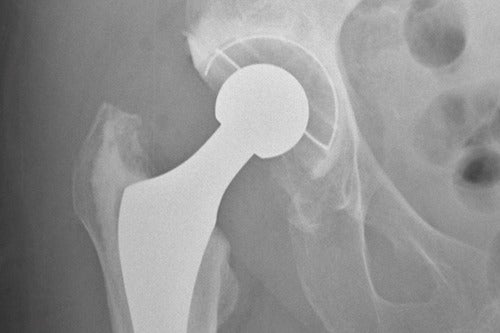
The study findings show that the majority of hip (89%) and knee (93%) replacements lasted 15 years.
The research was funded by the National Joint Registry and the NIHR, from the Musculoskeletal Research Unit at the University of Bristol.
In many such cases, where revision surgery was required, it was also more prone to failure, because of poorer function and it was more expensive than the primary surgery.
The knowledge of how long a hip or knee replacement is likely to last is important for patients, orthopaedic surgeons and commissioners when deciding whether surgery should be done and when. This knowledge could be relevant to more people given the longer life expectancy of growing population.
The Bristol Medical School National Joint Registry Research Fellow and Clinical Research Fellow and lead author Jonathan Evans said: “Over two million hip and knee replacements have been performed in the UK since 2003 and patients often ask clinicians how long their hip or knee replacement will last, but until now, we have not had a generalisable answer.”
“Previous studies have been based on much smaller samples. At best, the NHS has only been able to say how long replacements are designed to last, rather than referring to actual evidence from multiple patients’ experiences of joint replacement surgery. Given the improvement in technology and techniques in the last 25 years, we expect that hip or knee replacements put in today may last even longer.”
Hip replacement surgery primarily includes two components, one that replaces the ball and another that replaces the socket. There is a variation in how these parts are fixed to the bone and also in the materials used to create the bearing (contact) surface.
In the UK, there are two main types of knee replacement. A total knee replacement, where all the patient’s own joint surface are replaced and unicondylar knee replacement (UKR), where only the damaged part of the knee is replaced.
There is a considerable difference in how long different designs of hip and knee replacements can last and these factors have been accounted in the study, the researchers stated.
Research team from the University of Bristol collected data related to hip replacement and knee replacement surgeries from Australia, Denmark, Finland, New Zealand, Norway and Sweden. These countries hold more than 15 years’ worth of data.
A total of 215,676 reports, whose cases were followed up for 15 years after undergoing total hip replacements, 74,052, who were followed up for 20 years and 51,359, who were followed up for 25 years.
Of the total hip replacements, 89% were found to last 15 years, 70% lasted 20 years, and 58% lasted 25 years.
93% of TKRs and 77% of UKRs lasted for 15 years. 90% of TKRs and 72% of UKRs lasted 20 years. 82% of TKRs and 70% of UKRs had lasted for 25 years.






